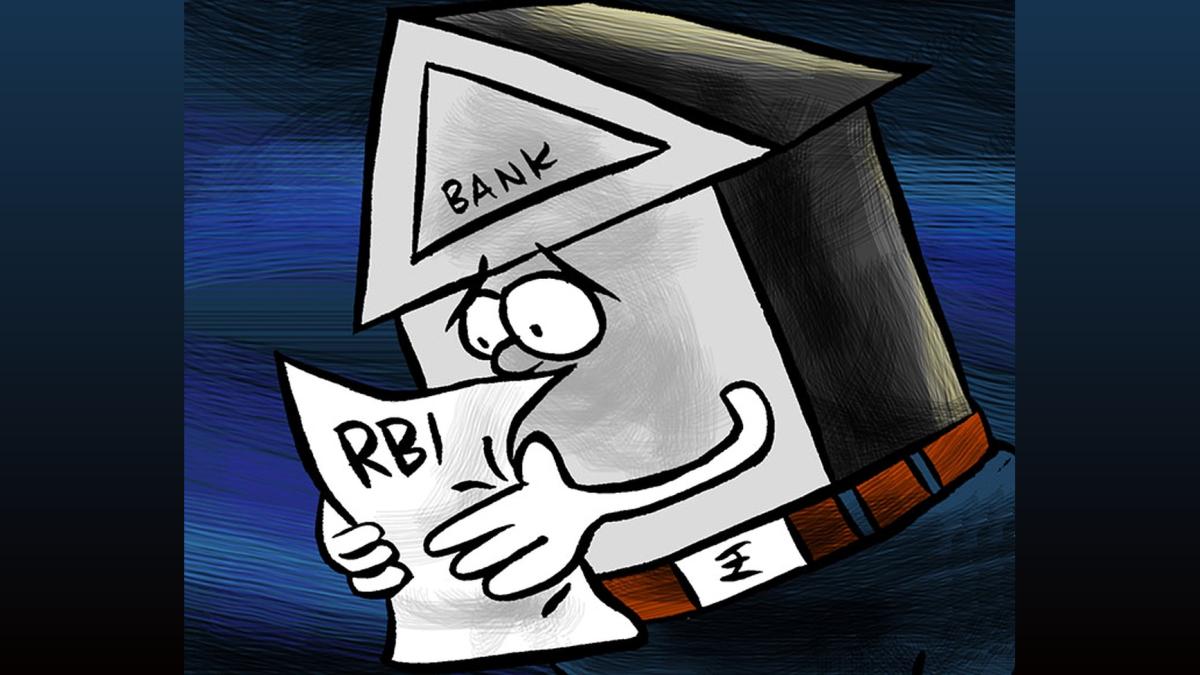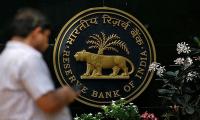RBI's Revised Fair Lending Norms Effective April 1
Reserve Bank of India (RBI) has announced new fair lending norms, effective April 1, prohibiting banks and NBFCs from using penal charges as revenue generators. The norms aim to ensure reasonable and non-discriminatory penal charges in case of loan defaults.

Illustration: Uttam Ghosh/Rediff.com
Mumbai, Jan 15 (PTI) The revised fair lending practice, which prohibits banks and NBFCs from using penal charges on loan defaults as a revenue enhancement tool, will come into effect from April 1, the Reserve Bank said on Monday.
Concerned over the practice of banks and non-banking financial companies (NBFCs) using penal interest as a revenue enhancement tool, the RBI on August 18 last year had modified norms, under which lenders would be able to levy only "reasonable" penal charges in case of default in repayment of loans.
Banks, NBFCs, and other entities regulated by the RBI were given an extension of three months till April to implement the revised norms.
In a set of frequently asked questions (FAQs), the RBI on Monday said that in the case of existing loans as well, the instructions shall come into effect from April 1, 2024, and the switchover to the new penal charges regime shall be ensured on the next review/ renewal date falling on or after April 1, 2024, but not later than June 30, 2024.
On whether the August 2023 guidelines would also be applicable in case of default in repayment by the borrower, the FAQs said default in repayment by the borrower is also a type of non-compliance of material terms and conditions of loan repayment contract by the borrower and penalty, if charged, for such default may only be levied in the form of penal charges and not penal interest.
"Such penal charges shall be reasonable and levied by the lenders only on the amount under default in a non-discriminatory manner as per their Board approved policy. Further, it must be ensured that there is no capitalisation of the penal charges -- no further interest computed on such charges," they said.
The central bank further said although no upper limit/ cap for penal charges has been prescribed in the August 2023 circular, the regulated entities (REs), while formulating their Board approved policy on penal charges, should keep in mind that the intent of levying penal charges is essentially to inculcate a sense of credit discipline and such charges are not meant to be used as a "revenue enhancement tool".
"Accordingly, the quantum of penal charges shall have to be 'reasonable' and 'commensurate' with the non-compliance of material terms and conditions of the loan contract," it said.
The RBI's instructions do not apply to credit cards, external commercial borrowings, trade credits and structured obligations, which are covered under product-specific directions.
Concerned over the practice of banks and non-banking financial companies (NBFCs) using penal interest as a revenue enhancement tool, the RBI on August 18 last year had modified norms, under which lenders would be able to levy only "reasonable" penal charges in case of default in repayment of loans.
Banks, NBFCs, and other entities regulated by the RBI were given an extension of three months till April to implement the revised norms.
In a set of frequently asked questions (FAQs), the RBI on Monday said that in the case of existing loans as well, the instructions shall come into effect from April 1, 2024, and the switchover to the new penal charges regime shall be ensured on the next review/ renewal date falling on or after April 1, 2024, but not later than June 30, 2024.
On whether the August 2023 guidelines would also be applicable in case of default in repayment by the borrower, the FAQs said default in repayment by the borrower is also a type of non-compliance of material terms and conditions of loan repayment contract by the borrower and penalty, if charged, for such default may only be levied in the form of penal charges and not penal interest.
"Such penal charges shall be reasonable and levied by the lenders only on the amount under default in a non-discriminatory manner as per their Board approved policy. Further, it must be ensured that there is no capitalisation of the penal charges -- no further interest computed on such charges," they said.
The central bank further said although no upper limit/ cap for penal charges has been prescribed in the August 2023 circular, the regulated entities (REs), while formulating their Board approved policy on penal charges, should keep in mind that the intent of levying penal charges is essentially to inculcate a sense of credit discipline and such charges are not meant to be used as a "revenue enhancement tool".
"Accordingly, the quantum of penal charges shall have to be 'reasonable' and 'commensurate' with the non-compliance of material terms and conditions of the loan contract," it said.
The RBI's instructions do not apply to credit cards, external commercial borrowings, trade credits and structured obligations, which are covered under product-specific directions.
You May Like To Read
TODAY'S MOST TRADED COMPANIES
- Company Name
- Price
- Volume
- Alstone-Textiles
- 0.31 (+ 3.33)
- 92150305
- Vodafone-Idea-L
- 10.51 (+ 2.14)
- 46849968
- Mehai-Technology
- 1.83 (+ 3.98)
- 31413468
- Spicejet-Ltd
- 34.17 (+ 5.14)
- 26649485
- Murae-Organisor
- 0.27 ( 0.00)
- 25696198






